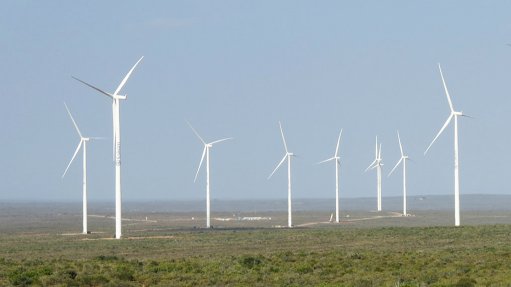Incentives must remain crucial part of SA’s industrial policy arsenal
I was heartened to hear Trade and Industry Minister Dr Rob Davies confirming the importance of investment incentives when he unveiled the latest iteration of government’s Industrial Policy Action Plan (Ipap) earlier this month.
The event was staged in Benoni, at the site of the Guestro Naledi Inhlanganiso Group foundry, a 100% black-owned business that has received State support.
To my mind, investment incentives are at the heart of Ipap, and, if well tar- geted, they can act as the most powerful tool in government’s arsenal for promo- ting industrial growth. Indeed, I do not think there could be an Ipap without incentives.
The largest industrywide incentive has been the Manufacturing Competitiveness Enhancement Programme (MCEP), which was put on hold last year. It was such a success that the funding was exhausted.
However, Davies and his officials have now confirmed that the MCEP will be updated, although the successor industry- wide programme will be smaller. The Department of Trade and Industry (DTI) seems to be convinced that it gets more bang for its buck from industry-specific, targeted incentives. These include the support programmes for the automotive sector; for clothing, footwear and textiles; for business outsourcing; and for the film industry. I agree with the Minister on this issue.
Is it right that the DTI is picking winners? Whether it works to give support to the industrial sectors that show real promise is a matter of debate for another day. What we do know is that there will be new support focused on agroprocessing, on rail equipment and on industries supply- ing equipment for oil and gas exploration. But what about companies on the periphery of these priority value chains? As an example, metals and machinery could be a big input into the agroprocessing sector to build new cold stores.
Surely, it is vital that government works with companies in key value chains to design incentives that are appropriate for them, even if they do not fall into most- favoured industries?
Take the example of rail, where Transnet and the Passenger Rail Agency of South Africa have awarded megatenders to companies such as GE and Alstom. These companies are obliged to develop a supply chain, and Guestro Naledi has the capability to supply directly to the multi- nationals as a Tier 1 supplier to that value chain. However, what about Guestro Naledi’s own suppliers, as the value chain cascades down? It is surely logical that there is sup- port for tier 2, 3 and 4 suppliers. What do they need in terms of incentives to be successful?
A similar case can be made in agroprocessing, where value chains stretch from the large corporate processors down to farming and also upward to retail. Even if the retailers themselves are not to be incentivised, large food companies like KFC should be in the discussion on how government provides support, as they are the ultimate customers. They are best placed to make inputs where quality and cost improvement in food products can stimulate local procurement. What are their suppliers struggling with in terms of quality, delivery time, and so on? Incentives should be designed to assist in overcoming these challenges.
The positive news is that government, led by the Presidency, is embarking on a major review of all its investment incentives in an exercise that could, and should, lead to better and more efficient use of public money.
I would like to see a lot of focus on the successor programme to the MCEP to ensure that there are no gaps in our industrial landscape where there is no chance of any support. Exactly how the new ‘son’ of the MCEP will operate is not clear, but my understanding is that new applications will not be accepted until it is launched. Davies has now confirmed that the successor programme will be introduced but, at this stage, there is no clarity on what form it will take and when it will be released.
And, of course, there are already gaps in the coverage of existing incentives. The MCEP covers expansions only, which means that there is a gap in support for new projects. There is support involving new and expansion projects for black industrialists, but only for investments exceeding R30-million, and this new scheme has yet to yield any approvals. Meanwhile, the industrywide tax incentive, 12I, is only available for projects of R30-million and above.
Previously, this gap was filled by the Enterprise Investment Programme, which closed in September 2013 and has not been replaced with anything similar. The 12I incentive has a R20-billion budget, and this budget is going to run out in mid-2016.
Will there be a replacement or top-up for 12I – if so, when? Certainty is vital in business, and large projects have long planning horizons, so I would recommend that an announcement is made soon.
Of course, a further complication is that there is not just one government department responsible for incentives. 12I sits in the Income Tax Act and is, therefore, under the legislative control of the National Treasury instead of the DTI. Is there a disagreement between the DTI and the Treasury on whether the 12I incentive should be extended or replaced? I hope not.
The latest unemployment statistics are scary, and recent measures of business confidence have been worrying. Government has voiced its determination to sup- port industry, and that is very welcome. However, the review of the array of incentives, and in particular what is done to extend to work of the MCEP and 12I incentives, will be the real test of how effective our Ministers wish to be in their support for industry. They cannot afford to get it wrong.
Newman is the Founder of Cova Advisory, which provides assistance for companies seeking government incentives and also advises on sustainability issues.
Comments
Press Office
Announcements
What's On
Subscribe to improve your user experience...
Option 1 (equivalent of R125 a month):
Receive a weekly copy of Creamer Media's Engineering News & Mining Weekly magazine
(print copy for those in South Africa and e-magazine for those outside of South Africa)
Receive daily email newsletters
Access to full search results
Access archive of magazine back copies
Access to Projects in Progress
Access to ONE Research Report of your choice in PDF format
Option 2 (equivalent of R375 a month):
All benefits from Option 1
PLUS
Access to Creamer Media's Research Channel Africa for ALL Research Reports, in PDF format, on various industrial and mining sectors
including Electricity; Water; Energy Transition; Hydrogen; Roads, Rail and Ports; Coal; Gold; Platinum; Battery Metals; etc.
Already a subscriber?
Forgotten your password?
Receive weekly copy of Creamer Media's Engineering News & Mining Weekly magazine (print copy for those in South Africa and e-magazine for those outside of South Africa)
➕
Recieve daily email newsletters
➕
Access to full search results
➕
Access archive of magazine back copies
➕
Access to Projects in Progress
➕
Access to ONE Research Report of your choice in PDF format
RESEARCH CHANNEL AFRICA
R4500 (equivalent of R375 a month)
SUBSCRIBEAll benefits from Option 1
➕
Access to Creamer Media's Research Channel Africa for ALL Research Reports on various industrial and mining sectors, in PDF format, including on:
Electricity
➕
Water
➕
Energy Transition
➕
Hydrogen
➕
Roads, Rail and Ports
➕
Coal
➕
Gold
➕
Platinum
➕
Battery Metals
➕
etc.
Receive all benefits from Option 1 or Option 2 delivered to numerous people at your company
➕
Multiple User names and Passwords for simultaneous log-ins
➕
Intranet integration access to all in your organisation


















